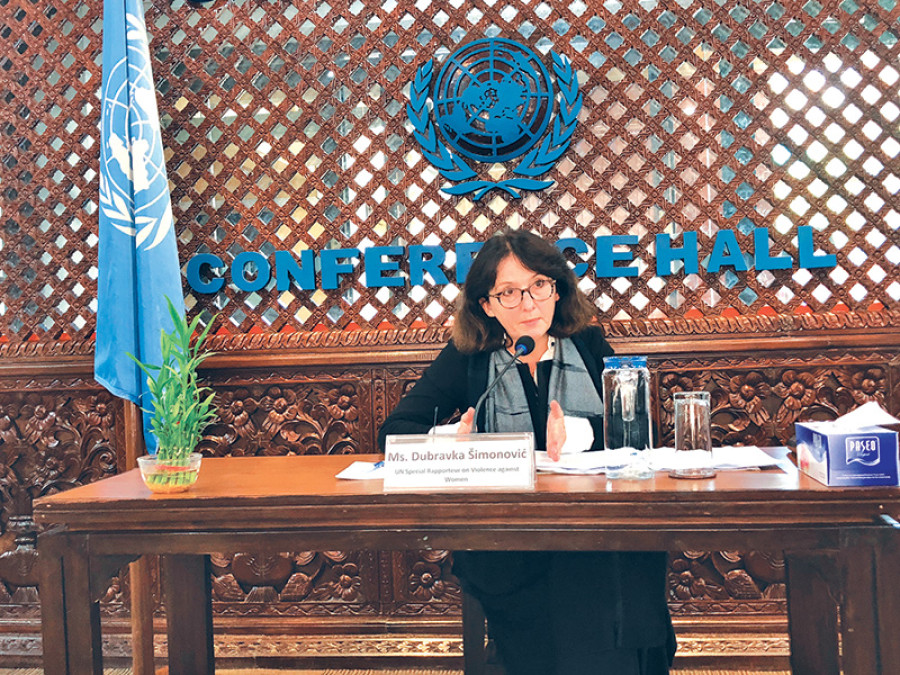National
Nirmala rape and murder is a test case for Nepal, says UN Special rapporteur
How the government handles the Nirmala Pant rape and murder case will determine its true commitment towards respecting international human rights laws, Dubravka Šimonovic, the UN special rapporteur on violence against women, told reporters during a sparsely attended press briefing on Thursday where she presented preliminary findings from her report examining the state of sexual violence in the country.
Tsering D Gurung
How the government handles the Nirmala Pant rape and murder case will determine its true commitment towards respecting international human rights laws, Dubravka Šimonovic, the UN special rapporteur on violence against women, told reporters during a sparsely attended press briefing on Thursday where she presented preliminary findings from her report examining the state of sexual violence in the country.
“The ongoing case of Nirmala Pant is a test case for the government,” said Šimonovic. “My mandate will closely follow any developments in this case, in the hope that it will be effectively resolved in line with the human rights standards, as adopted by Nepal.”
During her ten-day visit, Šimonovic met with several senior government officials from various ministries including Minister of Women, Children and Senior Citizens Tham Maya Thapa, Supreme Court Justice Sapana Pradhan Malla, Attorney General Agni Prasad Kharel, representatives from the National Human Rights Commission, the National Women’s Commission and international organisations and survivors of sexual violence.
“I have requested more information on the case and have told them I would be following up,” said Šimonovic when asked if she had discussed the unsolved rape and murder case of teenager Nirmala during her meetings with government officials.
While acknowledging Nepal’s progress in developing a legal framework to protect women’s rights that is on par with international standards, she noted there still exists considerable implementation gaps. “Prevalence of harmful practices such as Chhaupadi shows contradictions between high level standards and the realities of women and girls who are still subjected to such practices,” said Šimonovic. “There are many laws that address those practices but those laws are still not being implemented. The main challenge is to ensure these laws and policies are fully implemented at the federal, provincial and local level.”
Šimonovic also highlighted the presence of discriminatory provisions in the Citizenship Act which does not grant a woman the same rights as a man to pass on citizenship to a child as being problematic and not in line with Article 9 of the CEDAW Convention of which Nepal is a signatory. She also brought up the Foreign Employment Act which limits foreign employment opportunities for women.
“This banning of foreign domestic work is pushing women, particularly displaced or indigenous Dalits women and girls, into irregular immigration which is extremely dangerous,” she said.
Many of Šimonovic’s observations and recommendations—urging the government to amend unequal provisions in the Citizenship and the Foreign Employment Act, to expedite appointment of commissioners on the National Women’s Commissions, to expedite adoption of a bill to amend the 2014 Enforced Disappearance Enquiry, Truth and Reconciliation Act, problems with implementation of laws—are similar to those presented by other rights bodies in the past.
She will present her final report to the UN Human Rights Council in June 2019.




 9.7°C Kathmandu
9.7°C Kathmandu














